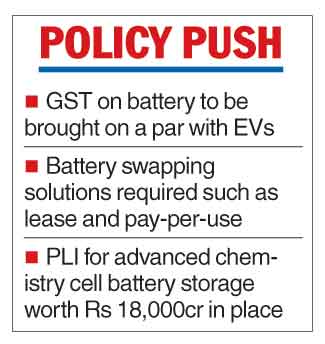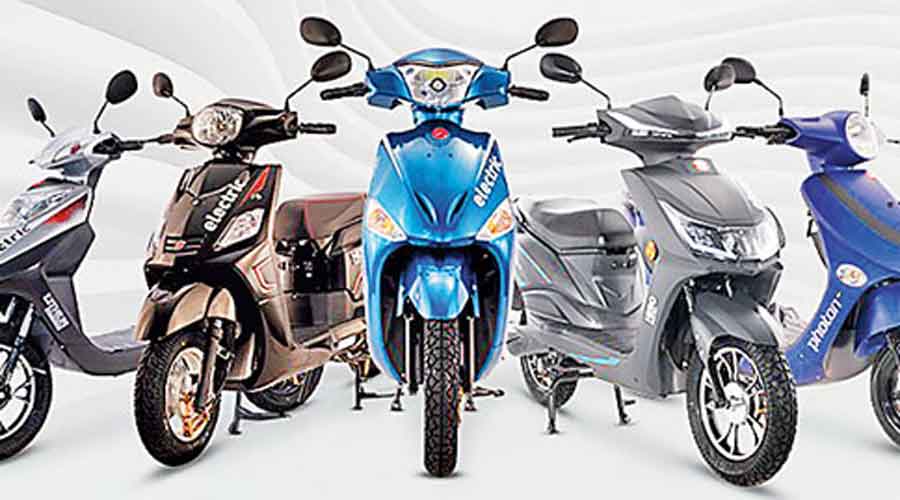The GST Council meeting to be held later this month may cut the goods and services tax on lithium-ion batteries to 5 per cent from 18 per cent, bringing them on a par with electric vehicles.
Analysts said India’s EV ambitions may suffer a setback without the rationalisation of the rates on lithium-ion batteries. The council last cut the rate to 18 pecent from 28 per cent in 2018.
With a greater emphasis on the EV ecosystem and more automakers entering the fray, there is a renewed demand for a price parity between batteries and EVs.

“Tax rates on lithium-ion batteries and electric vehicle supply equipment are 18 per cent and 5 per cent, respectively. The GST Council may consider reducing the differential across the tax rates. The council will take an appropriate decision at a suitable time,” the draft Niti policy said.
A recent meeting of the officials of Niti Aayog with the ministries of new and renewable energy and heavy industries dicussed tax rationalisation and the standardisation of batteries, officials said.
“The proposal to reduce the tax rate will reduce issues faced with an inverted duty structure and working capital requirement of EV manufacturers. The rate reduction will not have an impact on the pricing of the EV,” Asish Philip Abraham, partner, Lakshimikumaran and Sridharan Attorneys, said.
On battery swapping, he said, the government should support innovative service solutions such as pay-per-use and leasing . The government must clarify the nature of supply in relation to battery swapping. “This will suport a zero waste policy of recovering precious metals from the black mass. This will help in faster adoption of EV.”
Niti Aayog also suggested the existing scheme be revised or a new scheme be launched to provide subsidies to the developers of battery-swapping stations.
Hiren Parvin Shah, executive director and CEO of RePlus, part of LNJ Bhilwara Group, said bringing down the GST on lithium-ion batteries “will give the green mobility industry a much needed fillip, and catapult India in the direction of becoming a global manufacturing hub for EVs”.
The Centre has been making efforts to boost the manufacturing of EVs and batteries. It launched the production-linked incentive scheme for advanced chemistry cell battery storage with an outlay of Rs 18,100 crore.










